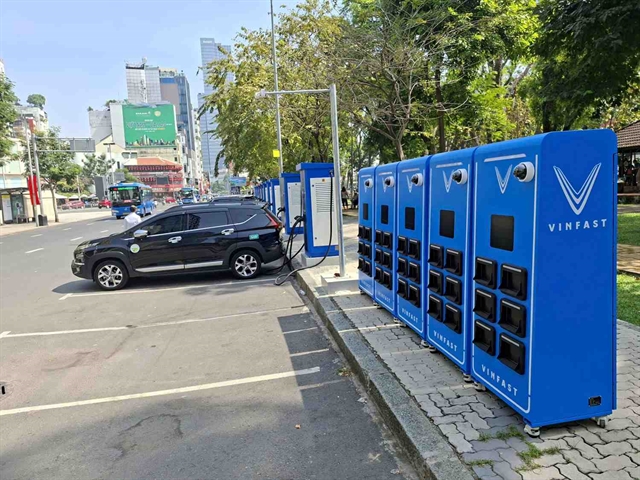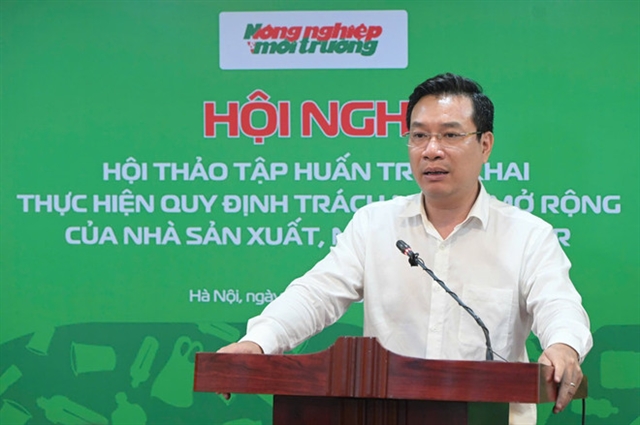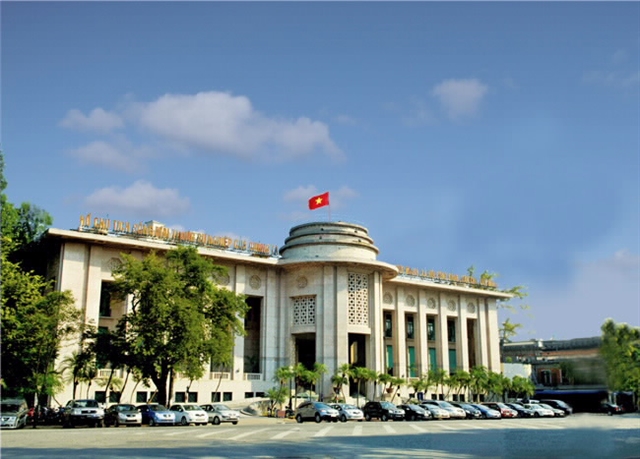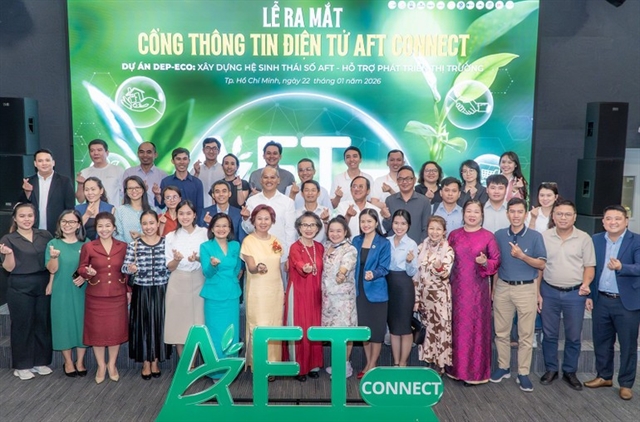 Environment
Environment

 |
| Deputy Director of the Department of Environmental Pollution Control Hồ Kiên Trung. — VNA/VNS Photo |
Hồ Kiên Trung, Deputy Director of the Department of Environmental Pollution Control under the Ministry of Agriculture and Environment, has highlighted the pressing need for better waste sorting and treatment in Việt Nam’s urban areas, where rising volumes of rubbish are piling pressure on outdated systems. Speaking to VietnamPlus e-newspaper, he outlined essential measures to tackle the mounting environmental challenge, especially in major cities.
How would you describe the current situation of domestic waste collection and sorting across the country, especially in Hà Nội and HCM City?
According to statistics, before the nationwide administrative restructuring, the total amount of domestic solid waste generated nationwide was about 69,400 tonnes per day with a treatment rate of 91 per cent.
Of this, urban areas generate about 37,250 tonnes on a daily average with a treatment rate of 97.28 per cent. In rural areas, these figures are respectively 32,150 tonnes and 80.5 per cent, of which landfilling accounted for about 59.32 per cent (equivalent to a 30 per cent decrease compared to 2012).
In Hà Nội alone, the amount of waste generated per day is about 7,300 tonnes while in HCM City it is about 14,000 tonnes. The total waste from these two cities accounts for about 23 per cent of the country’s total.
Regarding the collection and sorting of domestic solid waste, most localities are currently only implementing this policy on a small pilot scale. As of June 30, 2025, about half of the localities across the country then piloted the sorting of domestic solid waste.
In some rural areas, some households treat domestic solid waste themselves by repurposing it for animal feed, as bedding for livestock or by landfilling or incineration in their gardens.
The sorting of domestic solid waste, as you mentioned, is mostly being implemented on a small pilot scale while open landfills are still rampant in many places. What are the challenges and causes of this situation?
The primary challenge of this situation in large cities is the lack of a comprehensive technical infrastructure from sorting, collection and transportation to treatment of sorted domestic solid waste.
In particular, there is a lack of infrastructure and technology to recycle and treat food waste and organic waste, which accounts for a considerable proportion of 50-60 per cent of the total waste volume, to turn it into biomass energy such as humus, compost, biomass electricity or process it into feed for livestock and poultry.
Furthermore, although there are mechanisms to mobilise social resources for waste collection, sorting, recycling and treatment, their implementation remains limited. Therefore, the resources have not been able to respond to the demands.
Notably, the ‘polluter pays principle’ has not been thoroughly carried out, especially with inadequate fee collection for waste collection, transportation and treatment. This fails to encourage private investment in the process.
In addition, several local Party committees, authorities, organisations and people haven’t demonstrated sufficient awareness and responsibility towards waste sorting and turning waste into a resource.
Meanwhile, local campaigns aimed at raising awareness and a sense of responsibility for domestic solid waste sorting among households and individuals have not had a wide enough reach and the practice has not yet become a habit or way of life for the people. Yet these tasks are decisive prerequisite factors for the success of waste sorting at the grassroots level and they fall under the responsibility of provincial and municipal people’s committees.
 |
| Implementing waste sorting, collection and treatment at the grassroots level remains a major challenge in large cities, particularly Hà Nội and HCM City. — VNA/VNS Photo Quốc Lũy |
Facing this situation, what are the immediate solutions from the Ministry of Agriculture and Environment (MAE) to address waste problems in urban areas?
Based on assessments of the key issues in waste sorting, collection and treatment in major cities recently, the MAE has set the priority on completing legal documents and technical guidelines for domestic solid waste management in the immediate future (2025 and 2026).
Accordingly, the ministry will review the shortcomings in domestic solid waste management in the Law on Environmental Protection and related decrees to propose amendments. It also plans to issue a circular on the national environmental technical regulations on landfills for domestic solid waste among other measures.
The MAE is also advising the Government to report to the National Assembly (NA) on the implementation of laws and policies regarding environmental protection since the 2020 Law on Environmental Protection took effect. Then, an NA resolution for improvements in this regard can be issued.
In this report, our department proposes looking into restructuring budget expenditures for environmental protection, focusing on key priorities. Another recommendation is to invest in essential environmental infrastructure projects such as technical systems for the collection, sorting and treatment of domestic solid waste.
In addition, the ministry is also working on a tentative governmental resolution on promoting a nationwide movement for environmental protection, focusing on sorting, collecting, recycling and treating waste for a ‘bright, green, clean, beautiful Việt Nam.’
For localities, it is necessary to urgently develop and issue technical processes, economic-technical norms and issue maximum and specific fees as well as payment forms for domestic solid waste collection, transportation and treatment, by volume or weight, which must be treated according to each type as prescribed.
In the long term, what solutions does the MAE have to ensure that domestic solid waste is collected and treated in a circular economy approach?
In the long term, we will continue to accompany ministries, sectors and localities in continuing to strengthen communication, advocacy and guidance to raise community awareness about domestic solid waste sorting and management.
The MAE will also focus on mobilising and seeking international projects to improve local capacity and technical infrastructure for effective waste collection, sorting, recycling and treatment.
In particular, the ministry will focus on policy implementation regarding the responsibility of producers and importers in collecting, recycling and treating waste from their products and packaging in order to mobilise private resources in this process.
Regarding localities, it is an urgent requirement to launch investment into a comprehensive technical infrastructure for this process, from sorting, collection and transportation to treatment of sorted domestic solid waste. This should be carried out in a manner that is consistent with the provincial planning post-mergers and as soon as the NA and the Government issue the medium-term public investment projects for 2026-2030.
Localities also need to continue to promote, on a regular and long-term basis, communication and engagement of the public in environmental protection.
In this aspect, the Việt Nam Fatherland Front and its member organisations such as youth unions, women’s unions, veterans’ associations and farmers’ union play a core role in organising, guiding and supervising the implementation of reducing waste generation as well as the sorting, collection, transportation, recycling and treatment of domestic solid waste. — VNS




